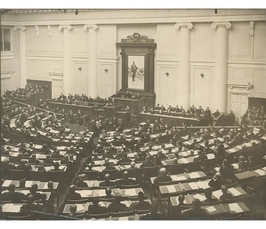Jour Fixe: Tatiana Borisova: Power Politics and the Problem of the Originality of Russian Law in Late Imperial Russia
Jour Fixe
- Date: Oct 17, 2016
- Time: 12:00 PM - 01:00 PM (Local Time Germany)
- Speaker: Tatiana Borisova
- National Research University Higher School of Economics, St. Petersburg
- Topic: Power Politics and the Problem of the Originality of Russian Law in Late Imperial Russia
- Location: MPIeR
- Room: Z 01
